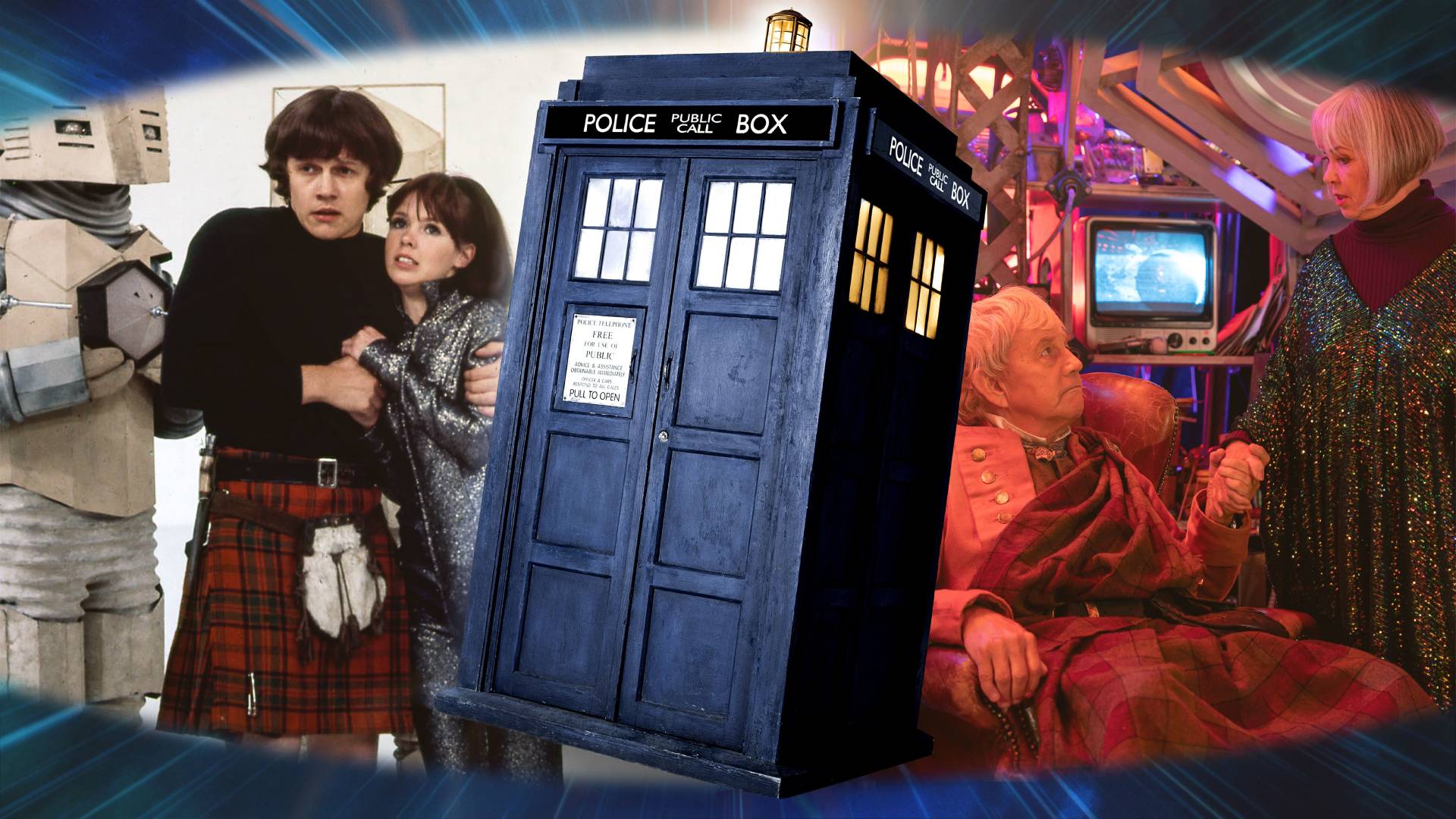
The following feature first appeared in the October 2023 issue of SFX magazine. You can purchase a hard copy here.
Six of the seven episodes of the 1967 Doctor Who adventure 'The Evil Of The Daleks' were destroyed during the television archive purge of the ’70s. Despite that, the story has enjoyed a remarkably healthy afterlife, boasting a plethora of releases including vinyl and CD soundtracks and a full-color animation.
With the publication of a novel by Frazer Hines, the Doctor’s explosive confrontation with his greatest enemies has been told from the perspective of his companion Jamie McCrimmon. Nobody knows Jamie better than Hines, who was able to provide a unique insight into the character that brings the story to life in an entirely new way.
Brought to book
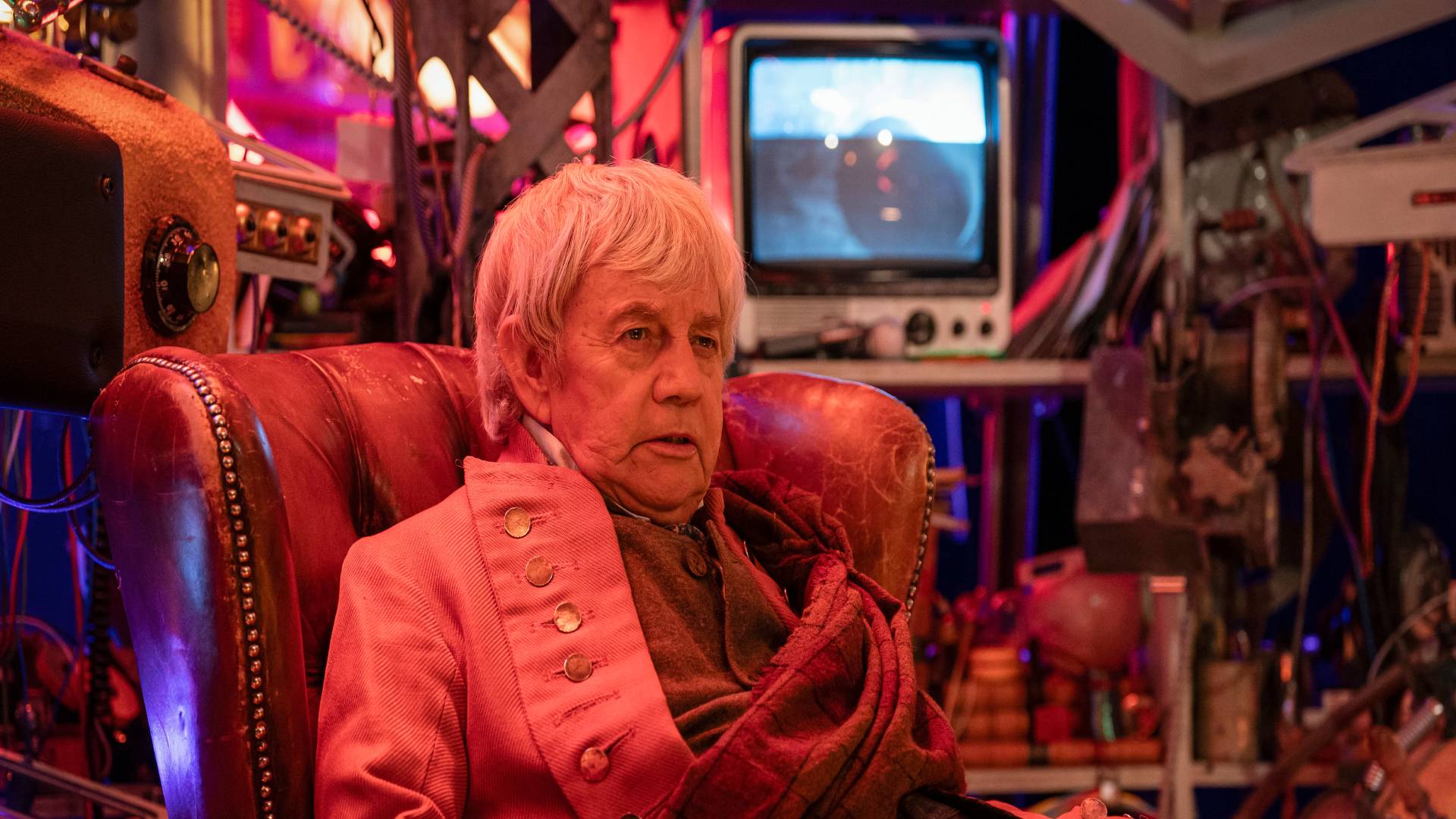
BBC Books’ initial approach was, however, met with some hesitation from the actor. "I said, 'I can’t write a book," Hines tells SFX. "I’m normally used to saying lines, not writing them." But the offer of a hands-on editor was the encouragement he needed.
"There was a lot of stuff that I had to include," he says. "When you’re watching the show on TV, there’s two men looking around, and a car draws up, and one gets out, nods to the other man and they get in. Then Jamie and the Doctor run after them. I had to write all that. ‘So and so looks awkwardly. He jumps out, knocks him on the head…'"
Hines’s novel is a faithful adaptation of the story. "I had somebody, not exactly looking over my shoulder, but making sure that I stayed on track," he says. "The script wasn’t considered to be written in stone, so I had some flexibility." In saying that, "I couldn’t add a monster, or another character."
Fans may spot a number of in-jokes. However, some of Hines’s more outlandish input is missing, believed wiped. "It was like when I wrote my autobiography Hines Sight," he says. "There was an editor who cut stuff out. I said, 'But it’s my book!’ and they’d say, 'Yes but you can’t say this, and you can’t put that.' So, I was under a jurisdiction so to speak – somebody keeping an eye on me!"
Four months of writing was a fun, albeit "lonely" experience for the "gregarious" Hines. "I’m used to making people laugh, bouncing off them and joking. Being on your own is very disciplined. I’m also quite a lazy person. You can’t just think, 'Oh, I’ll do the book next week.' You do get sort of spaced out, banging your head against a brick wall."
"The Evil Of The Daleks" follows directly from "The Faceless Ones," an adventure set at Gatwick Airport. In that story, Jamie is startled by the sight of a "flying beastie."
The Highlander’s endless confusion and wonderment over innovations from both the ’60s and Victorian England could easily have impeded the novel’s flow. So Hines came up with a crafty workaround. "Someone once said to me, 'I noticed Jamie had a watch on. Surely in 1746 he wouldn’t have had a watch?’ And I said, 'Do you know this show goes out on a Saturday night? Well, on the Sunday, what do you think happens in the TARDIS? That’s when the Doctor teaches Jamie how to tell the time.' That’s how you get around it."
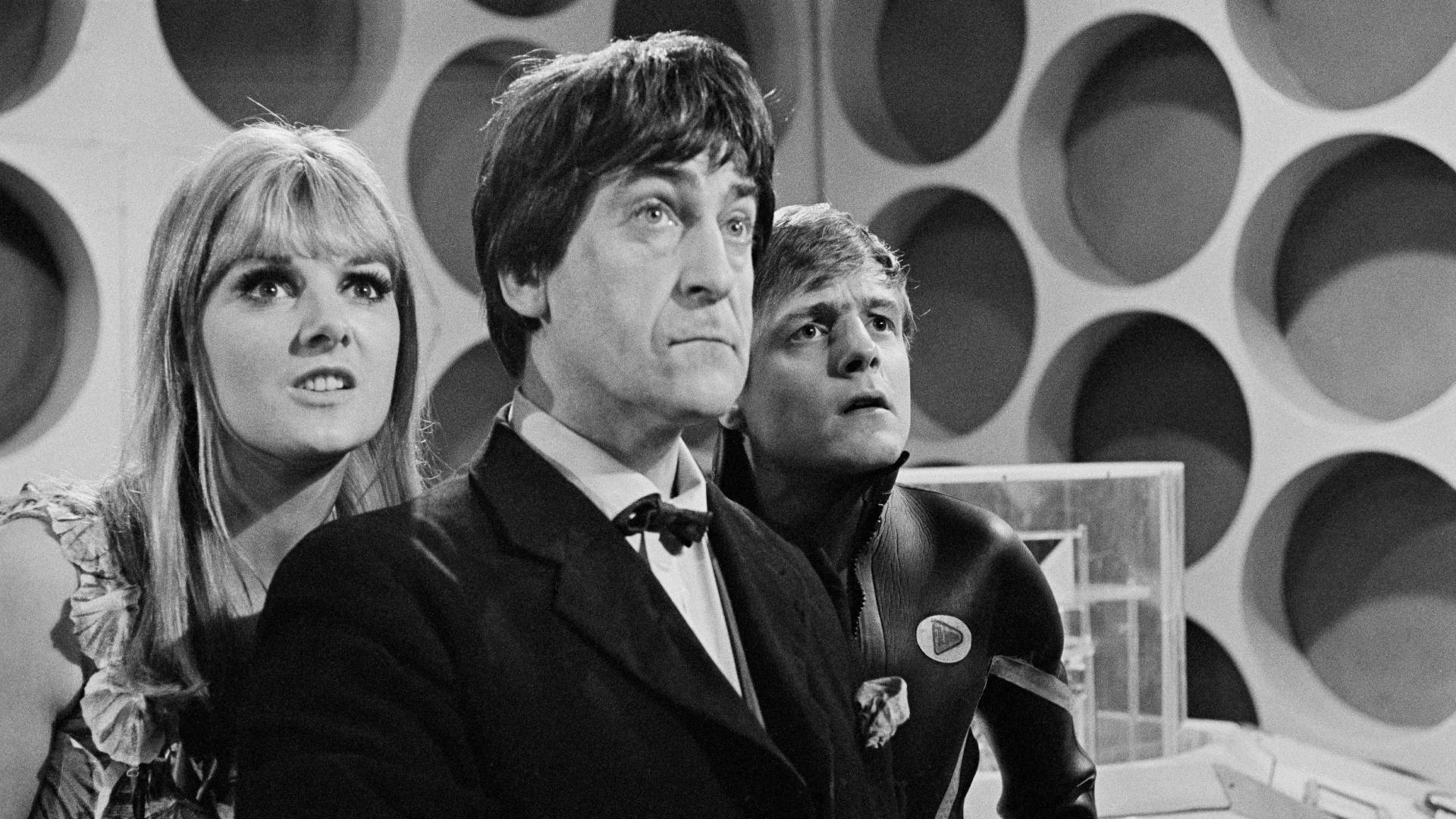
In similar fashion, the novel’s Jamie will be aware of the Daleks despite encountering them for the first time in the television serial. We must assume that the Doctor gave him the lowdown on his greatest foe during a Sunday night getting-to-know-you session.
"I couldn’t wait to meet the Daleks," Hines says about the television production. Indeed, he was unable to resist a close-up examination of one of his co-stars during a break in rehearsal. "I went off to the studio and opened up a Dalek, jumped inside, and pulled the lid down. I walked around saying 'I am a Dalek!' But then I heard somebody coming.
"I thought it could be the prop man, so I stayed put. There’s an unwritten law that you mustn’t touch the props. But it was two of the actors. They actually leaned on me, because they couldn’t see me – you can see out of a Dalek, but nobody can see in. They started slagging the show off: 'the script’s crap' and everything.
"After two minutes I said, ‘I heard that!’ and scooted away. They fell over because they were leaning on me!” Hines was persuaded to keep his mouth shut. "I got free beer for the week," he laughs.
These days, "The Evil Of The Daleks" is widely regarded as a Doctor Who classic. Back in 1967, the script was enough of a draw to attract high-profile actors including John Bailey and Brigit Forsyth. "I knew that it would be a fantastic show with that cast," Hines says.
Respected actor Marius Goring, who played scientist Theodore Maxtible, "immediately fell into all the pranks and jokes," Hines recalls. "In rehearsals he kept saying, 'I’m going to insert into the Dalek this suppositronic brain.' He kept saying it. In the end Derek [Martinus, the director] said, 'Isn’t it positronic brain, not suppositronic?' He said, 'Yes, you saw my deliberate mistake.'"
Auntie's bloomers
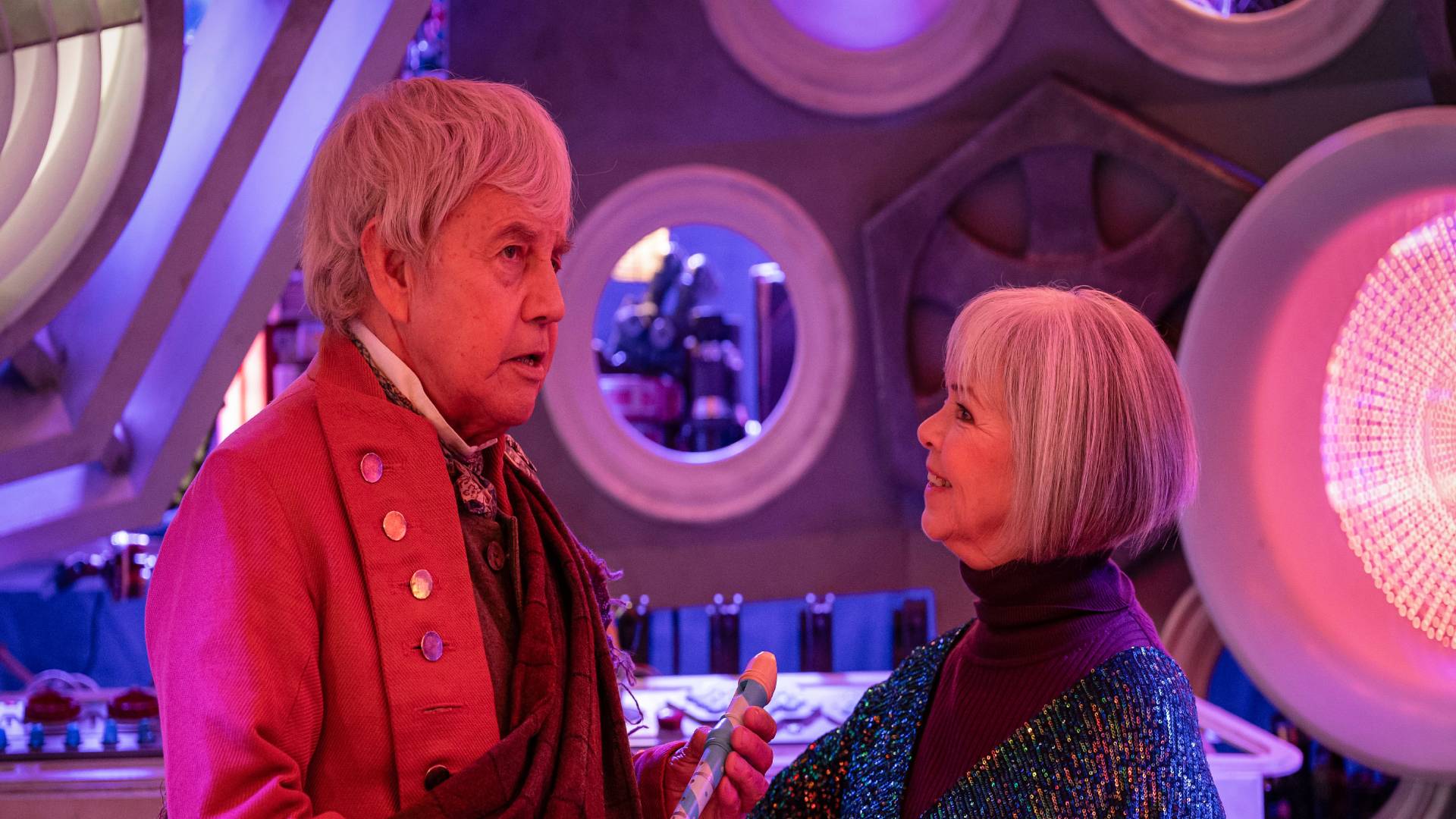
On the trail of the stolen TARDIS, the Doctor and Jamie find themselves in the trendy Tricolour café. Was Hines part of the swinging ’60s scene? "Oh definitely," he nods. "When we finished on a Friday or a Saturday night in studio, I’d go down to Hatchetts nightclub, or The Scotch of St James. A pal of mine was drummer of the Marmalade, Alan Whitehead. And Mike Wade, the pop singer. We’d just hang around and go to nightclubs, dance the night away – and chat the girls up!"
Grim’s Dyke House in Harrow Weald, near London, provided suitably Victorian interiors for Maxtible’s house. "I’m not a great lover of sets," Hines admits. "On location you feel proper heavy doors and dustiness." He has translated these experiences into evocative descriptions in the novel.
Victoria Waterfield, the Doctor’s soon-to-be traveling companion, is imprisoned in the house by the Daleks. "I fancied her like mad because she was beautiful," Hines smiles of the late Deborah Watling. “We’d seen her in a TV show called "Calf Love" [part of the series The Wednesday Play], where she played someone very similar to Victoria, funnily enough. She was just lovely.
"This little doll – you just wanted to sort of look after her. And we did. My first line to Debbie was ‘Quick, Miss Waterfield, up your passageway’," Hines continues. "We all had dirty minds in those days. We couldn’t say it. Derek said, 'Why can’t you say it?' And Debbie was going, 'You can’t say that to me, it’s so funny!' She had a great sense of humor, Debs, she really did."
In a key scene, the Daleks set a trap for Jamie by placing a handkerchief inscribed with the initials VW – "Victoria Waterfield, not Volkswagen" – on the floor for him to find and pick up. Hines couldn’t resist an opportunity to play a joke on Watling.
"I’d got a pair of knickers," he says. "I picked them up saying, 'These are Miss Waterfield’s, I’d recognize them anywhere!' And of course, Debbie said, 'They’re not mine!'" Playing on the original gag, the knickers would later emerge from Goring’s top pocket. "'Yes, it’s a very hot day…!' Marius said, and he mopped his brow with the knickers. 'These are Miss Waterfield’s. I’d recognize them anywhere!'
"The encore was the Dalek coming onto set with the knickers on the end of its plunger." Hines imitates a Dalek: "'These are Miss Waterfield’s. I’d recognize them anywhere! How we ever got the show done I don’t know!"
History repeating
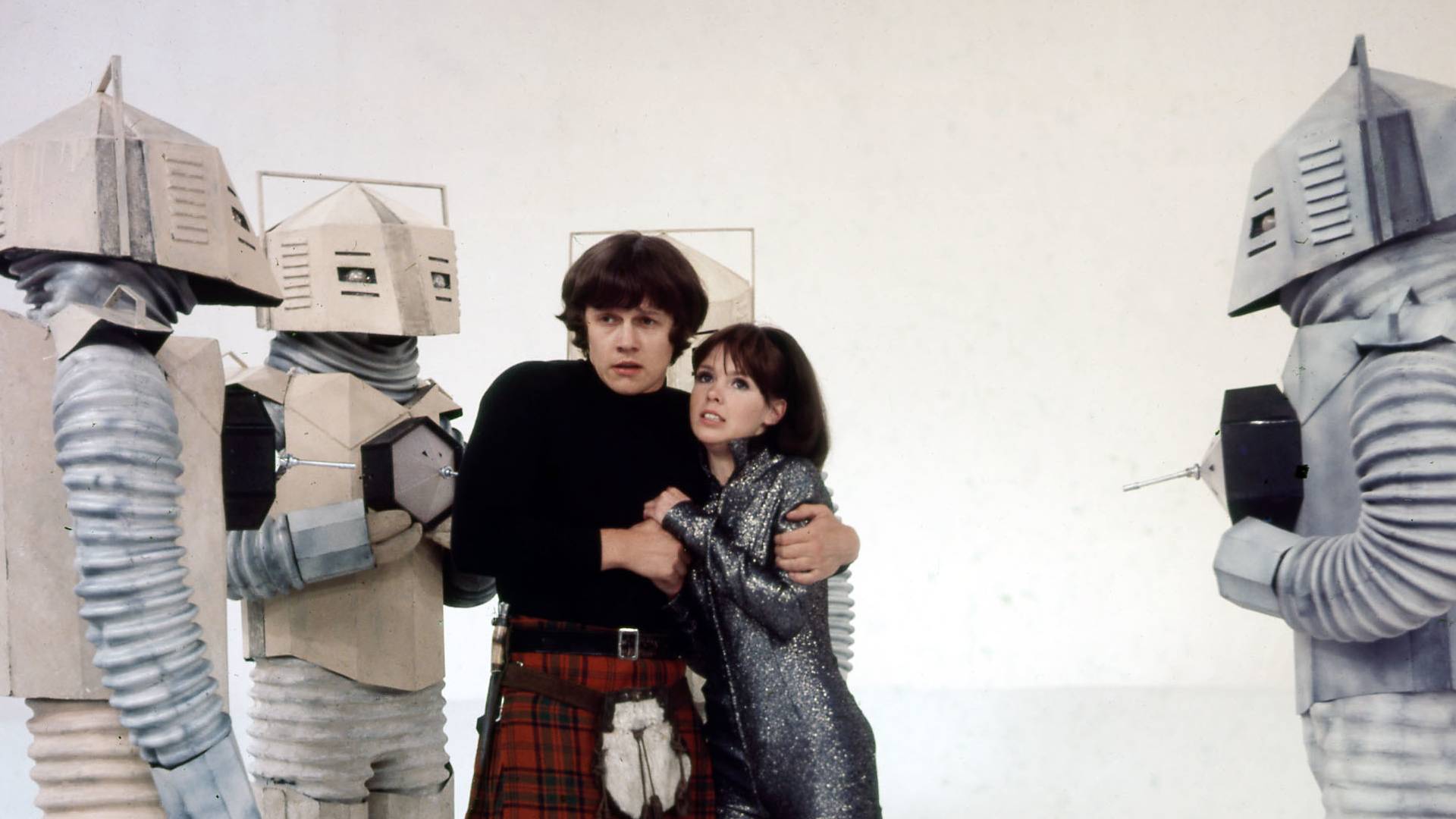
With the Daleks destroyed in an explosive battle, the Doctor proclaimed it to be the "final end" for his deadliest foes. Spoilers: it wasn’t.
Eleven months later, at the end of 1968 adventure "The Wheel In Space," astrophysicist Zoe Herriot joined the TARDIS crew. But this was after attempts by the Doctor to dissuade the stowaway by beaming the entirety of "The Evil Of The Daleks" onto the TARDIS scanner via a telepathic headpiece. In real life, it was a clever ploy by BBC1 (as it was then called) controller Paul Fox to schedule a repeat that would keep the show on the air while the regulars went on holiday. "We spent our holiday saying 'Cheers Paul!'" laughs Hines. "We got paid for being away. Wonderful!"
The story is quite categorically based on this repeat broadcast, making "The Evil Of The Daleks" a Doctor Who novelization first. Much of the action will be told in third person from the Doctor’s point of view, as he recounts events to an enthralled Zoe – who has a significant role to play herself.
Then, between each episode, we’ll go back to the TARDIS to witness Jamie’s first-hand account of the ongoing adventure. If neither Jamie nor the Doctor were present for the televised action, the TARDIS will step in.
How? We won’t give that one away. "I had to use a lot of poetic license," Hines laughs. "Otherwise, I’d have had to leave so much of the story out because Jamie and the Doctor weren’t there."
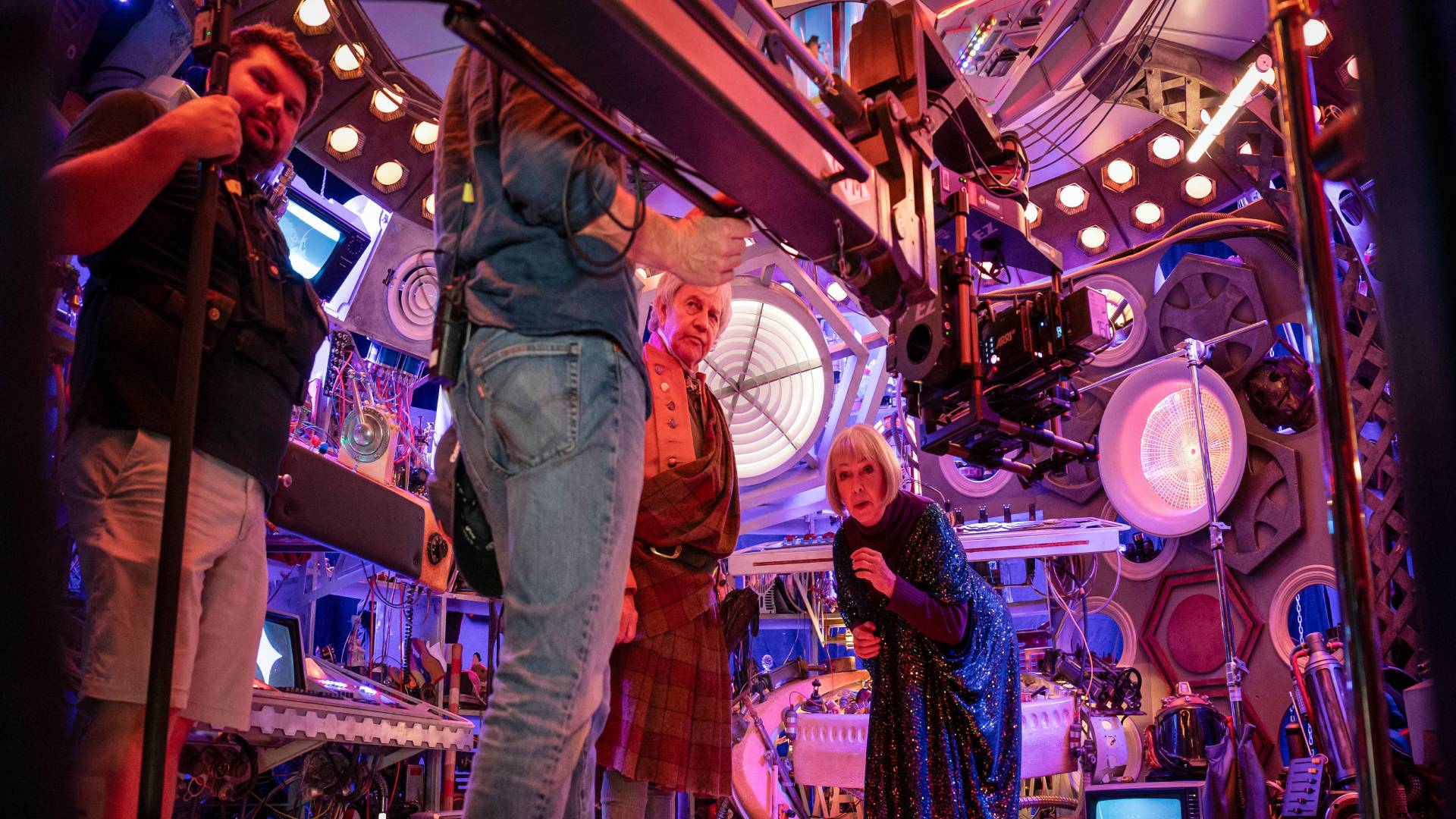
Hines recorded an audiobook of the novel, which he admits took a bit of a toll. "I said, ‘Never again,’” he laughs. “It’s two days on your own. If you do a Big Finish [audio play], you’ve got actors to play against and bounce off, but it’s just you and the director in another little cubicle, and you read from page one all the way through, stopping when you make a mistake. It’s a very lonely life.
"It was quite hard because it’s 70,000 words," he continues. "Originally, they wanted me to record it in one day. I said there’s no way. I could read a book in a day to myself, but the minute you start to read something out loud, it’s tricky.
"I made a lot of mistakes. The guy said, 'But you wrote this!' Just because I’ve written it, doesn’t mean I’ve learned 70,000 words. It’s difficult."
With a little twisting of his arm, Hines might be convinced to write another book. A strong contender would be his very first, and favorite, story "The Highlanders," which holds a place dear to him.
"If I hadn’t done that I wouldn’t have gone to Australia, New Zealand, America… Milton Keynes," he deadpans. In the meantime, a follow-up to Hines Sight is in the offing. "I’d started it, and then ‘Evil’ came in so that took up the time." The "final end"? For "The Evil Of The Daleks," it’s only the beginning.
Doctor Who: The Collection Season 20 is available to buy now. For more science-fiction fun, see our list of the best sci-fi movies of all time.







